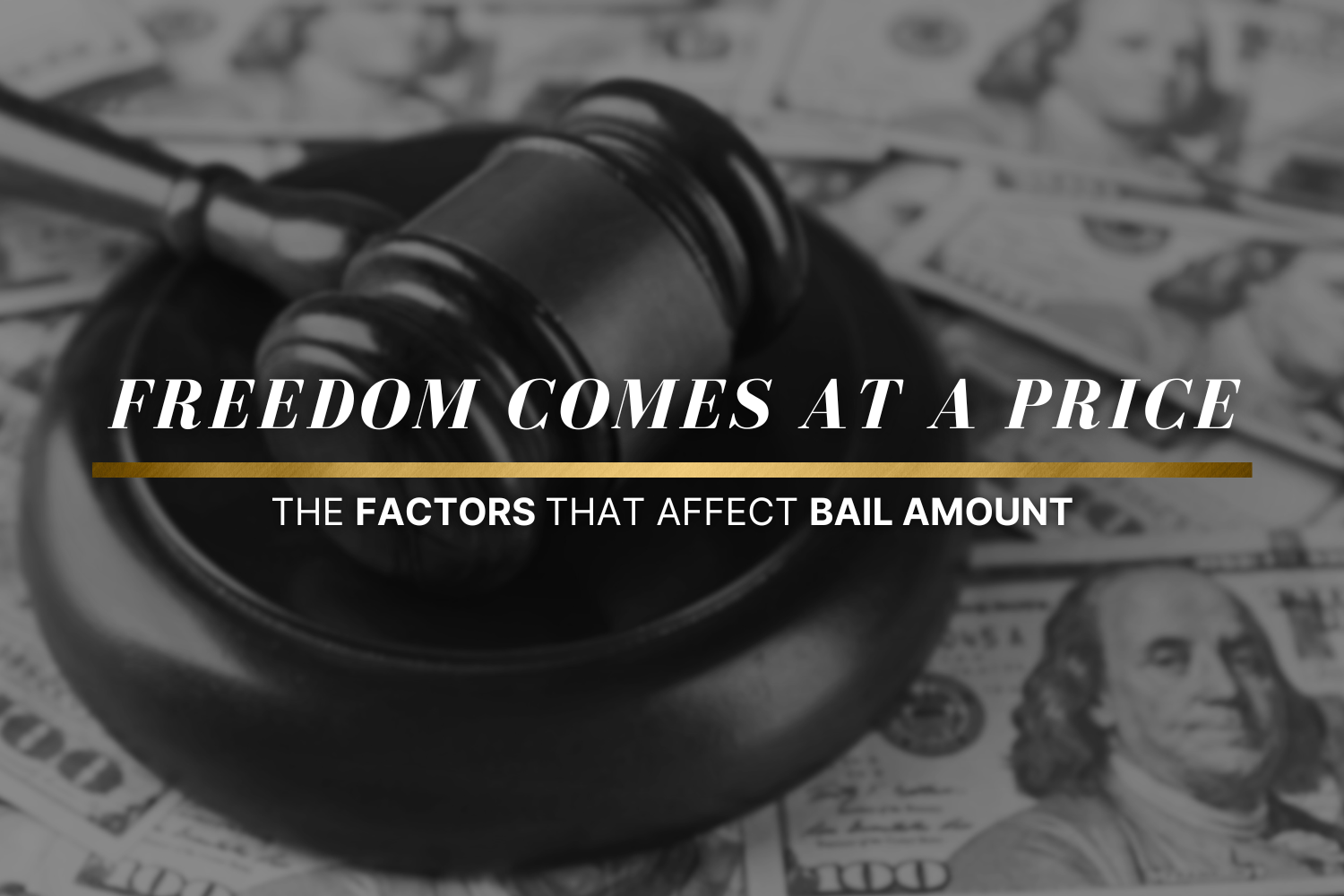Freedom Comes at a Price: The Factors That Affect Bail Amount
When someone is arrested, one of the first questions they (or their loved ones) ask is, “How much is bail?” Bail exists to ensure that defendants return to court while allowing them to remain free until their trial. However, the cost of freedom isn’t the same for everyone. Bail amounts can range from a few hundred dollars to hundreds of thousands, depending on the circumstances. For many, bail can be so high that it becomes unaffordable, forcing them to stay in jail until their case is resolved. Understanding how bail is determined and what factors influence its amount can help you or a loved one navigate the criminal justice system more effectively.
What is Bail & How Does It Work?
Bail is a financial guarantee that a defendant will return to court for future hearings. If they fail to appear, the court can forfeit the bail and issue an arrest warrant. Bail can be paid in different ways:
Cash or Credit Bail: The full amount is paid upfront to the court.
Bail Bond: A defendant pays a percentage of the bail (usually 10%) to a bail bondsman, who covers the rest in exchange for a non-refundable fee.
Valuable Assets as Bail: In some cases, defendants may use property, jewelry, or vehicles as collateral.
Once a case is resolved, the bail amount (if paid in cash) is typically refunded, minus any court fees. If a defendant skips court, they lose the money and could face additional charges.
What Influences the Bail Amount?
The judge considers several factors before setting bail, including:
Flight Risk: If the court believes the defendant is likely to flee the jurisdiction, bail will be higher—or even denied. Factors like having a passport, financial resources, or a history of missed court appearances impact this decision.
Severity of Charges: More serious crimes (such as violent offenses or felonies) generally come with higher bail amounts than minor misdemeanors.
Criminal History: Defendants with prior arrests, especially for similar offenses, may receive higher bail or be denied bail altogether.
Public Safety Concerns: If the defendant is considered a danger to the public—such as in cases of violent crimes or repeat offenders—the judge may set a high bail or deny it entirely.
Can Bail Be Reduced?
Yes, in certain cases, a defendant can request a bail reduction hearing where their attorney presents arguments for a lower amount. The judge will consider, the defendant’s financial situation, any changes in circumstances since the initial bail hearing, and whether a lower bail would still ensure court appearances. More than 60% of defendants are detained pre-trial because they can’t afford to post bail. A skilled defense attorney can argue for reduced bail or alternative release conditions.
What to Do If You Can’t Afford Bail
If bail is too high, there are options:
Bail Bondsmen: A licensed bail bondsman can post bail for a non-refundable fee (usually 10% of the bail amount). However, failure to appear in court can result in bounty hunters being sent after the defendant.
Personal Recognizance Release: In some cases, judges allow defendants to be released without bail, based on their promise to return for court dates. This is usually granted for low-risk defendants.
Hybrid Bail Payment Structures: Depending on your state's regulations, you might finance your bond via the court system. Typically, this requires paying about 10 percent of the total bond amount to the court, and you may also need to provide collateral, similar to what bail bond companies require. A significant distinction between private bail bonds and those financed by the court is that the court refunds the 10 percent fee after the case concludes, provided the defendant does not fail to appear.
Legal Motion for Bail Reduction: A defense attorney can file a motion to lower bail or request alternative conditions, such as house arrest or electronic monitoring.
Bail can be a confusing and expensive part of the legal process, but understanding how it works is important for anyone facing criminal charges. The amount is influenced by multiple factors, and in some cases, it can be reduced with the help of an experienced attorney. If you or a loved one needs legal assistance in a bail hearing, we are here to help. Schedule a consultation and get the legal guidance you need to secure release and fight your case effectively.

